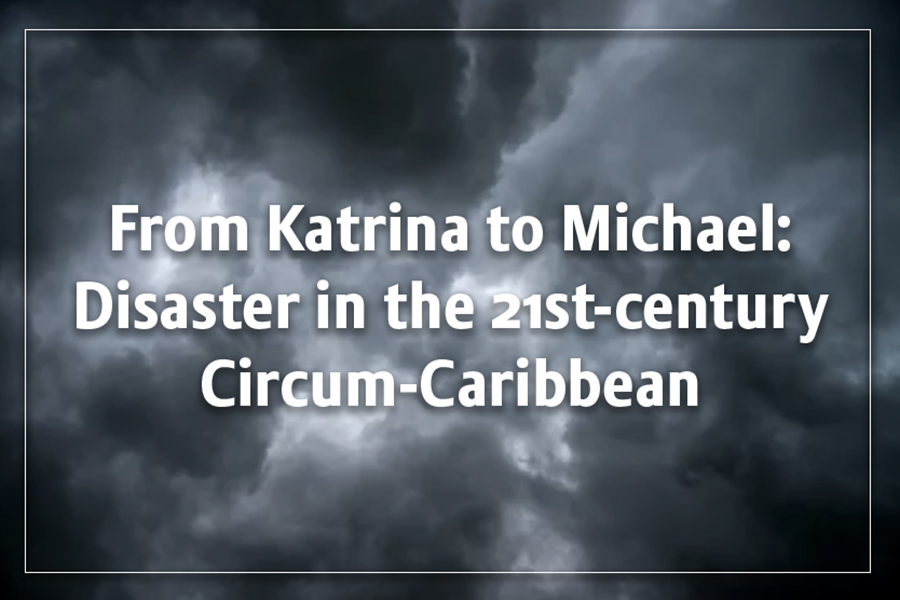From Katrina to Michael: Disaster in the 21st-century Circum-Caribbean

About the Event
Keynote speakers: Yarimar Bonilla (Rutgers University), Laura Wagner (freelance anthropologist), Mark Schuller (Northern Illinois University and Faculté d'Ethnologie - Université d'Etat d'Haïti)
Conference artist: Édouard Duval Carrié
To mark the 10-year anniversary of the Haitian earthquake, this conference proposes a regional approach to disaster that seeks to draw connections between 21st century experiences of catastrophe in the circum-Caribbean, including the south-east U.S. and North Florida post-Michael.
This comparative, regional perspective will allow us to consider, for example, how different forms of disaster capitalism encourage replacement of populations, displacing people who have longer histories in place with others who will have temporary and surface relationships to that place, transforming them into sites of skimming visitation. Such population replacement has taken place in New Orleans after Katrina, is being put into place bureaucratically in Puerto Rico after María, and is a major concern for the small coastal communities in the Florida panhandle after Michael. Likewise, mega-disasters open new opportunities for political experimentations such as the complete wipeout of public education in New Orleans or the possibility of a permanent federal shutdown in Puerto Rico.
Without suggesting that disaster is the only way through which to approach the contemporary circum-Caribbean, we welcome paper proposals on the following themes:
What happens to people displaced by disaster, for example, those who moved to parts of Florida following the Haitian earthquake and hurricane María?
How does disaster change people’s relationship to the land?
How have Caribbean communities responded to the shock doctrine model of disaster capitalism?
What are the forms and effects of a traumatized relationship with the environment?
How does the particular site of a disaster influence its relative effects?
What are the cultural >and political effects of disaster?
How do long-term processes such as colonization, mass-privatization, and resource extraction set up the Americas for mega-disasters?
How do early modern and colonial processes undergird disaster in the circum-Caribbean?
What are the changing relationships to territory, land, nation, and a sense of belonging given the ruptures, slow disasters, and modes of recovery?
What roles do gender, race, and social class play in determining particular experiences of disaster?
Please submit a 250-word abstract and short bio by October 10th, 2019.
Conference organizers: Matthew Goldmark, Anasa Hicks, Vincent Joos, Martin Munro, Jeannine Murray-Román, John Ribó.
